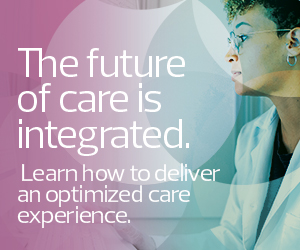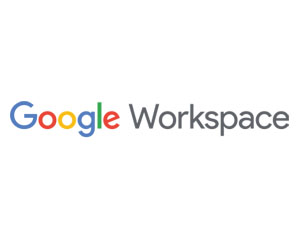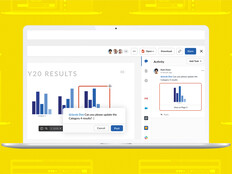HEALTHTECH: How can AI be used to empower healthcare providers and transform the way they work, especially as it relates to enhanced collaboration?
GONZALEZ: Clinicians are dealing with increasing levels of burnout, while developments in clinical care — such as remote patient monitoring and telehealth, accelerated by the global pandemic — continue to evolve. AI tools such as Med-PaLM 2, our medically tuned version of our PaLM 2 large language model (LLM), are helping healthcare providers improve administrative and operational processes.
Recently, HCA Healthcare in Tennessee started using Google Cloud to deploy generative AI to support administrative tasks for doctors and nurses; for example, extracting information from physician-patient conversations to help create medical notes. This helps eliminate the need for manual entry or dictation.
HEALTHTECH: Healthcare leaders are trying to figure out what AI means for their businesses. How can they decide the best use for it and how to implement it?
GONZALEZ: Let me give you just two examples: For clinical impact forecasting, AI can analyze vast data sets to predict disease outcomes and aid early disease detection. This not only improves patient care but also helps better allocate resources and free up clinicians to do more meaningful tasks.
Second is biomedical data analytics, which AI can enhance by automating data processing, uncovering hidden patterns and accelerating drug discovery and disease diagnosis. This reduces the need for costly and ineffective interventions and minimizes errors in medical records and billing.
EXPLORE: Ways healthcare can prepare for the future of AI.
HEALTHTECH: Security is always a concern when implementing new innovations, especially in healthcare. How do organizations ensure that AI won’t make their ecosystems vulnerable?
GONZALEZ: We know how highly healthcare organizations value security. After all, they are custodians of some of the most valuable information out there, and we know we have an immense responsibility to keep that personal data secure.
We take pride in being the only company that provides best-in-class generative AI embedded into a single platform that can scale securely, whether that’s writing something already in Google Workspace or building internal generative AI models using Vertex AI. Everything is already safe and secure as part of the Google Cloud.
I would add that with Duet AI for Google Workspace, you can deliver generative AI across your organization and be confident you’re not training public LLMs. We believe this democratizes access to the technology while also providing peace of mind to the organization and its users.
HEALTHTECH: What are the next steps leaders in healthcare can take on their generative AI journeys?
GONZALEZ: Getting started on your generative AI journey means crafting an AI strategy tailored to your organization's specific needs and goals. This strategy should delineate your AI objectives, pinpoint the key use cases for generative AI for your clinicians and patients, and identify the necessary resources for a successful AI implementation.
As you dive into this strategy, it's crucial to ask questions such as, which core use cases can benefit most from generative AI? When it comes to collaboration, what can we leverage through tools such as Duet AI and Google Workspace? What requires proprietary integrations using Vertex AI?
Closely following the progress of these initiatives will help healthcare IT leaders build on their successes, and they can leverage the accumulated data to further improve strategies and outcomes.
It's also key to find the right partner. In addition to providing technology, we help our customers with the frameworks and education required to leverage AI with the power, confidence and security needed to drive successful initiatives.
Brought to you by:













